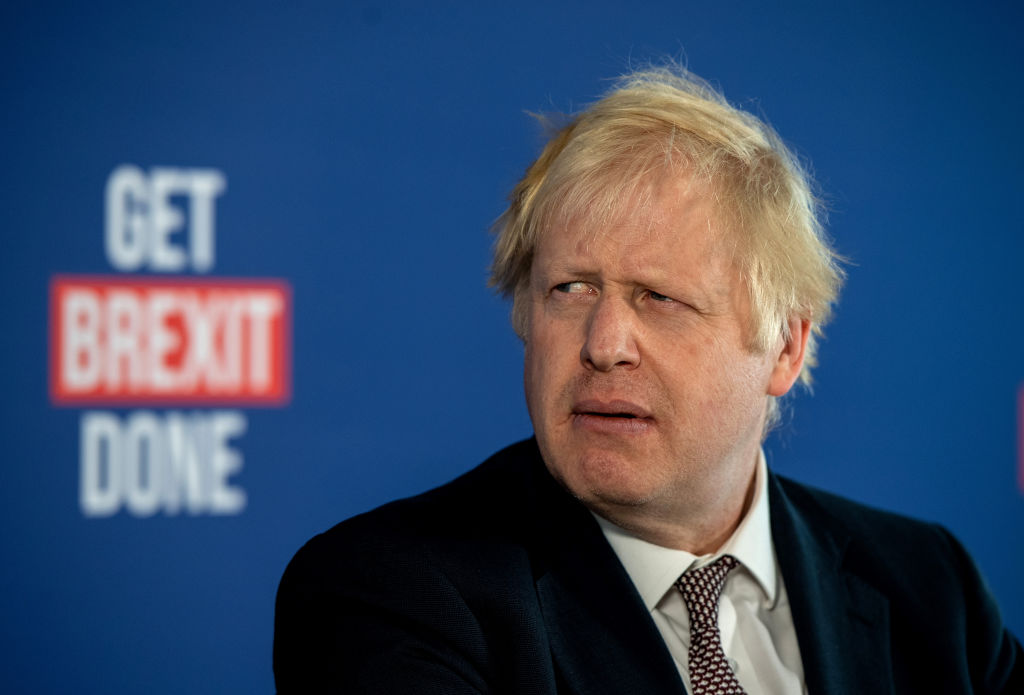The decline of the Liberal Democrats continues to give Labour a boost and rattle Tory nerves. Middle class Remainers who dislike Jeremy Corbyn are nonetheless deciding that he is their last best chance to thwart Brexit. Electing an anti-Semitic government so you don’t need to show a passport at Paris Charles de Gaulle is quite the ethical choice but there you go. It’s also a pretty big gamble. We know that Corbyn is a Brexiteer who believes freedom of movement drives down workers’ wages because he has told us as much. Voting for him to stop a hard Brexit isn’t so much holding your nose as poking your own eye, but Remainers know Labour backbenchers will hold him to his promises on a second referendum. Right?
The Tories have to determine whether continuity Remain’s Corbyn drift is enough to cost them a significant number of seats, which, at this stage, is any seats. If they deem the threat to be real, they need to stem the Remainer-to-Corbyn flow. They don’t have to convince them to vote Conservative — hardly likely with this demographic — but they do have to make sure they don’t vote Labour. Make way for a dead cat, because the Tories need to make a Labour vote appear futile for Remainers while riling the other side with tales of Labour’s dastardly plot to betray the 2016 Leave vote.
Dead cat? High-stakes dead cat? In 1992, Australian Labor prime minister Paul Keating had an election looming and was trailing Liberal leader John Hewson in the polls. Keating, a master strategist, grasped the two paradoxes that would frame the contest: 1. Australians preferred Keating’s social democratic policies to Hewson’s Thatcherite prescriptions but they also much favoured Hewson’s collegial style to Keating’s personal aggression. And 2. voters hated Hewson’s proposed Goods and Services Tax (GST) but believed they could elect him safe in the knowledge that Labor would vote it down in the Senate.
Keating decided to get brutal with the electorate and dropped a GST grenade into his next parliamentary exchange with Hewson, warning the Liberal leader (and, more to the point, the voters): ‘In the unlikely event of [the Liberals] becoming a government, the Labor Party would not obstruct the passage of the GST legislation in the Senate. I want it made totally clear that a vote for Hewson is a vote for the GST’.
The opposition burst into jubilation and the benches behind Keating lowered their heads grimly. Both sides were as one: he had just handed the election to Hewson. In fact, Keating would pull off an unexpected victory following a campaign in which Hewson’s GST was exposed as ill-conceived and applicable to almost everything, from bin bags to birthday cakes. Voters dreaded the costly chaos it was poised to unleash on their everyday lives, but Keating was steadfast: vote Hewson and we’ll pass his GST.
Threatening the voters with the other bloke’s policies is a fantastically Australian approach to electioneering but, in the end, it worked. Is there a lesson in this for Boris? Remain diehards don’t necessarily like Corbyn but are prepared to vote for him to stop Brexit. So why not tear up their tactical voting cards right in front of them? Boris could emulate Keating by announcing that, if Labour ends up in power on Thursday, the Conservative Party will set aside party politics to get Brexit done. If Prime Minister Corbyn followed his own instincts and negotiated a new deal with Brussels that took the UK out of the single market and ended freedom of movement, Tory MPs would vote for it. Corbyn would not need to put his deal to the country in a confirmatory referendum, with the risk of rejection and the damage that would do to his authority.
If he could guarantee the government payroll vote and the backbench loyalists, Boris would provide the rest of the numbers to pass it. Corbyn would have secured a withdrawal agreement, honoured the referendum result and succeeded where two Tory prime ministers had failed. Without the time-consuming and political-capital sapping distraction of another referendum, Corbyn would have demonstrated leadership and would be able to move on to his transformative economic and social agenda.
This strategy would hardly be without risk for the Tories. But their voters hate the idea of a second referendum and would back a Keating gambit purely for the delightful James O’Brien on-air meltdown it would inspire. The Tories would continue to campaign for their version of Brexit (e.g. customs union withdrawal) and promise that a future Tory government would act accordingly. If we can end freedom of movement from opposition, their spin for Brexiteers would run, imagine what we’ll able to do when we’re back in government.
A Keating gambit would dash the hopes of Remainers preparing to put Corbyn in Number 10. It would tell them that a vote for him is a vote for his version of Brexit; that once in power he will be free to pursue the end to free movement that he truly believes in; that Remainer Labour MPs will not be able to stop him because hundreds of Tories will support his deal; and that there will be no referendum with the option to Remain. Go on, the Tories would be saying to this demographic, vote Corbyn, and we’ll help him force through the hardest possible Brexit — until we get back in, that is.
Elections aren’t just about winning voters over. They’re also about recognising those voters you can’t win over and demoralising them, convincing them that their vote can’t change anything and may as well be wasted or not cast at all. Middle class Remainers won’t vote Tory but as long as they don’t vote Labour, that’s just as good for Boris Johnson. Threatening the voters with an ultimatum is high stakes but it’s also high yield. It worked for Paul Keating, and it could work for Boris too.







Comments